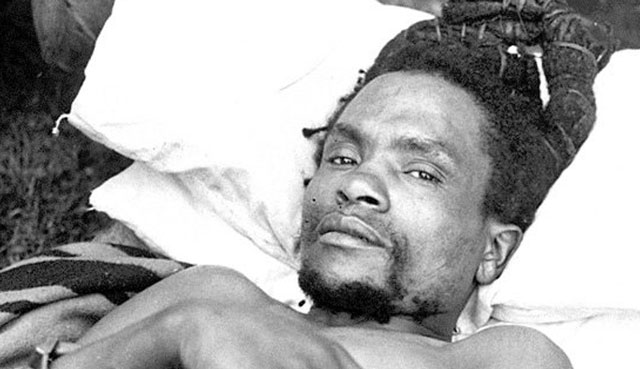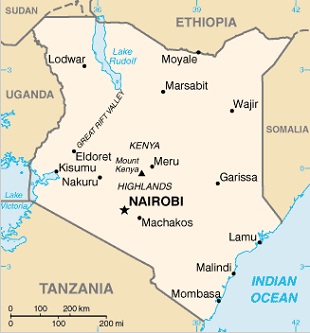
Nairobi, Kenya | AFP | The grave site of a guerilla leader in Kenya’s anti-colonial rebellion has been discovered beneath a prison in Nairobi, a foundation set up by his family says, more than 60 years after he was executed.
Dedan Kimathi, a top insurgent in the Mau Mau uprising that spurred Kenya towards independence from British rule, was hanged in 1957 at Nairobi’s Kamiti Maximum Prison.
His body was buried in an unmarked grave, the exact whereabouts of which were long unknown, despite concerted efforts by his family to identify the site.
But a nonprofit established in his name, the Dedan Kimathi Foundation, announced Friday it had found Kimathi’s resting place after a years-long search.
“It is with great joy we would like to announce that… the gravesite of liberation hero Field Marshal Dedan Kimathi Waciuri has finally been identified!” the foundation’s CEO Evelyn Wanjugu Kimathi said in a statement.
“The development is not just great news for the Dedan Kimathi family but also the larger freedom struggle heroes’ fraternity.”
A video posted on the foundation’s Twitter page showed supporters singing and dancing around Kimathi’s elderly widow, who has long urged Kenya’s government to help find her husband’s remains.
His grave was located beneath the prison, the foundation said, without offering further details about how it was found, or identified as Kimathi’s burial site.

His family hopes to exhume his remains for burial and is awaiting permission from the Chief Justice of the Supreme Court of Kenya, David Maraga, the foundation said.
Mau Mau fighters battled British colonial rule from 1952 to 1960, paving the way for independence even though the movement itself was defeated in a brutal crackdown.
The guerrillas, mainly drawn from the Kikuyu people, terrorised colonial communities with attacks from bases in remote forests, challenging white settlers for valuable land.
At least 10,000 Kenyans died in the struggle — some historians say more than double that.
Thousands suffered horrific torture including sexual mutilation, and tens of thousands more were detained in shockingly harsh detention camps, including US President Barack Obama’s grandfather.
The capture of Kimathi in October 1956, and his execution by hanging a year later, was a significant blow to the movement.
The insurgency over, Kenya won self-rule in 1963, and full independence the following year.
But while the Mau Mau was a key step towards independence, it also provoked bitter divisions between those who backed the fighters and those who served colonial forces. It remained outlawed until 2003.
In 2007, on the 50th anniversary of Kimathi’s death, then president Mwai Kibaki unveiled a bronze statue of the freedom fighter on a street named after him in downtown Nairobi.
In 2013, Britain compensated more than 5,200 elderly Kenyans tortured and abused during the insurgency.
 The Independent Uganda: You get the Truth we Pay the Price
The Independent Uganda: You get the Truth we Pay the Price


